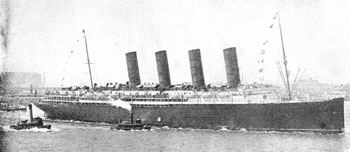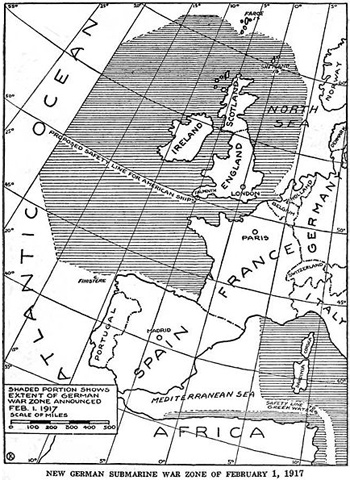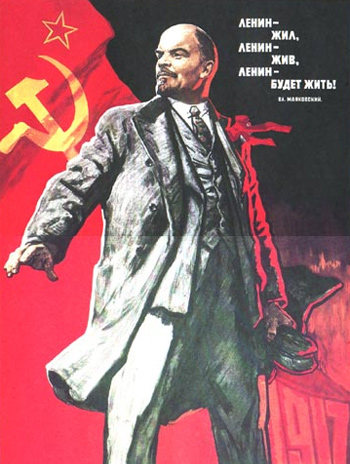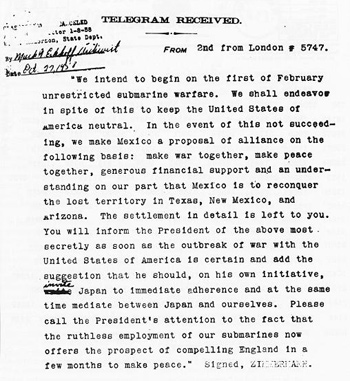By 1917, the United States could no longer avoid involvement in World War I. Several events caused the United States to enter the war.
![]() Click on the images to learn more about the events that caused the United States to enter World War I.
Click on the images to learn more about the events that caused the United States to enter World War I.
 Source: RMS Lusitania, Wikimedia
Source: RMS Lusitania, Wikimedia
|
German submarines were attacking and sinking merchant and passenger ships carrying American citizens. In May of 1915, a German submarine attacked a British passenger ship, The Lusitania of the coast of Ireland. Germany argued that The Lusitania was carrying weapons to the Allies in Europe. The ship was indeed carrying weapons, but 128 Americans were killed in the attack. The United States could no longer ignore German attacks on passenger ships.
|
 Source: German Submarine War Zone Announced 1 February 1917, Wikimedia
Source: German Submarine War Zone Announced 1 February 1917, Wikimedia
|
After sinking the Lusitania and other ships, Germany bowed to international pressure and agreed to restrict its submarine campaign. They would surface, give a warning signal, and allow neutral passengers time to escape before sinking any ship. In early 1917, Germany reversed its decision and announced that it would resume "unrestricted submarine warfare." Germany warned that U.S. citizens and other neutral passengers would sail at their own peril and should not travel on British passenger or merchant ships.
|
 Source: Leninposter, Wikimedia
Source: Leninposter, Wikimedia
|
Germany had been fighting on two major fronts in World War I - France and Russia. When the Russians pulled out of World War I, Germany could concentrate all of its military force on France and Britain. Russia's exit also removed the only Allied Power that was not a democracy. President Wilson could then argue that the US was entering the war to save democracies.
|
 Source: Zimmermann-telegramm-offen, Wikimedia
Source: Zimmermann-telegramm-offen, Wikimedia
|
In 1917, the British intercepted a telegram from the German foreign minister, Arthur Zimmermann, to his German ambassador in Mexico. In the encrypted telegram, Zimmermann promised that, in return for Mexican support, Germany would help Mexico regain the territory they lost during the Mexican War, including Texas, New Mexico, and Arizona. The Germans also wanted to encourage an alliance between Germany, Mexico and Japan. The British shared the intercepted telegram with the United States government. The Zimmermann note fueled anti-German feelings in the United States, and President Wilson asked Congress to declare war on Germany to "make the world safe for democracy."
|
Answer the following question in your
notes:
Why did the United States enter World War I in 1917 after years of neutrality? Explain.